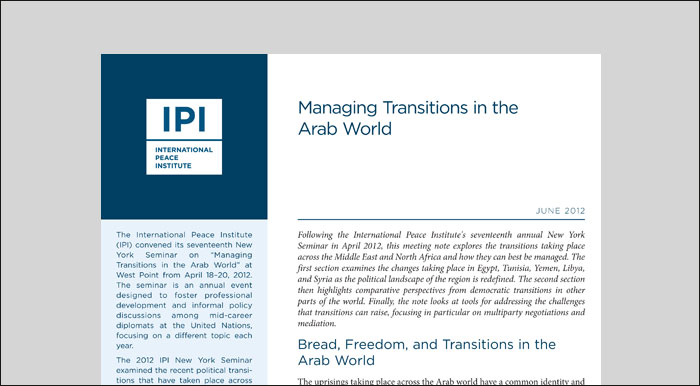 Despite their many differences, transitions taking place across the Arab world are united by demands for “bread and freedom.” They also share the common denominator of uncertainty. As turmoil and conflict continues in many places, what role can external actors play to facilitate democratic transitions in the region?
Despite their many differences, transitions taking place across the Arab world are united by demands for “bread and freedom.” They also share the common denominator of uncertainty. As turmoil and conflict continues in many places, what role can external actors play to facilitate democratic transitions in the region?
This meeting note presents a synthesis of discussions from IPI’s seventeenth annual New York Seminar in April 2012. Giving special attention to Egypt, Libya, Syria, Tunisia, and Yemen, the report examines the changes taking place across the region. It draws lessons from democratic transitions in other parts of the world and suggests ways that mediators and negotiators can address the challenges that these transitions raise.
Against the backdrop of an ever-changing political landscape, the report offers a number of insights and recommendations:
- In Egypt, even if a new president is successfully elected, his power remains undefined and will have to be fought for within the constitution.
- Lessons from transitions to democracy in other parts of the world do not bode well for Libya and Yemen—states struggling with territorial integrity have traditionally found it difficult to democratize.
- Overall, countries that have strong, independent institutions have a much better chance of doing well than those with eviscerated or broken institutions.
- Even in countries with weak institutions and strong personalities at the center of power, there is a space for politics that did not exist before; but new ways will have to be found to bridge the gap between citizen and state.







